- Home
- War in the Middle East
- Spotlight on UNIFIL: Everything You Need to Know
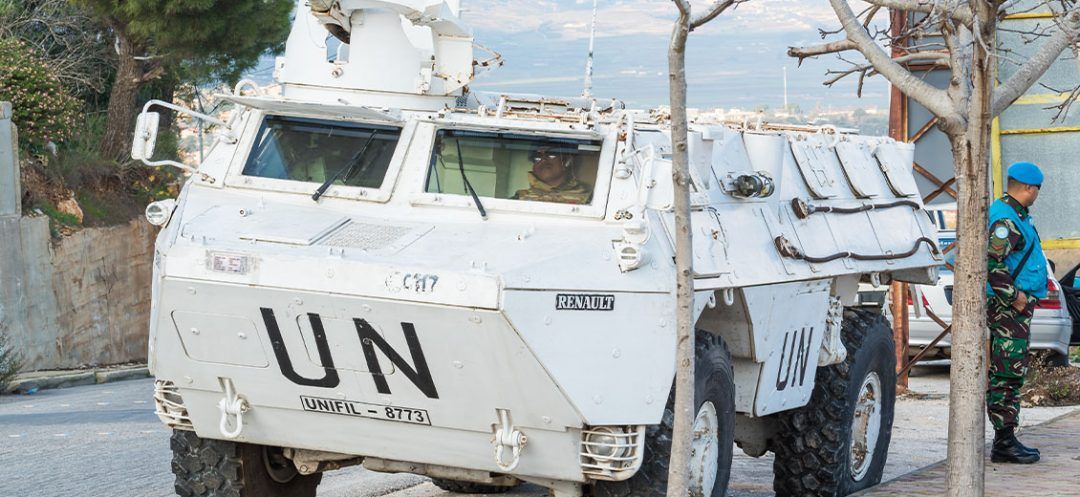
With the renewal of the UNIFIL mandate set for August 29, This is Beirut provides a comprehensive overview of this international force governed by UN resolutions.
The United Nations Interim Force in Lebanon (UNIFIL) mandate is due for renewal on August 29, 2024. This annual process involves the Security Council voting to extend UNIFIL's mission for another year at the request of the Lebanese government. This is Beirut provides an in-depth look at this international military force, entrusted with maintaining peace in South Lebanon.
Establishment of UNIFIL
UNIFIL was established in 1978 in response to armed conflict with Israel in South Lebanon. It was formed by two resolutions adopted on March 19, 1978, by the United Nations Security Council.
Resolution 425 called on Israel to “immediately cease its military actions against Lebanon's territorial integrity and withdraw its forces from all Lebanese territory without delay.” The resolution also mandated the “immediate establishment of a United Nations Interim Force in Lebanon,” with three key objectives: “to verify the withdrawal of Israeli forces, restore international peace and security, and assist the Lebanese government in reasserting its authority in the South Lebanon region.”
Building on the previous resolution, Resolution 426 established UNIFIL to operate under the UN's auspices “for an initial period of six months, extendable if necessary, as determined by the Security Council.”
UNIFIL's first international troops arrived in the region on March 23, 1978.
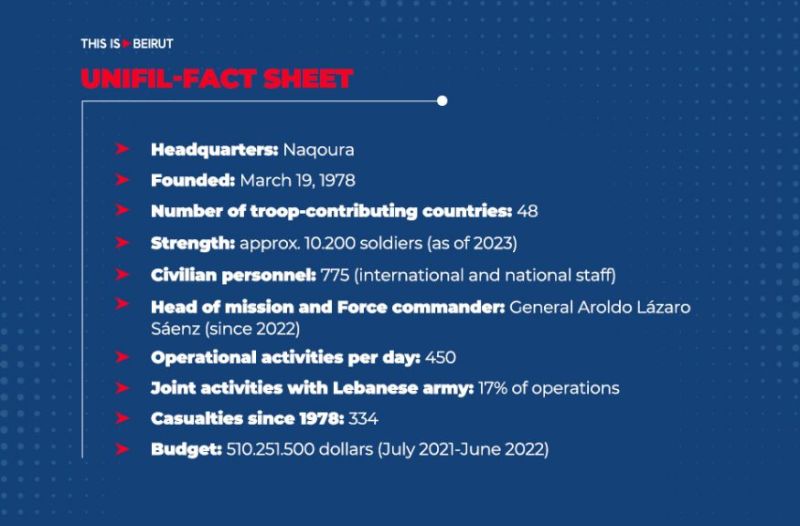
In which context?
On March 14, 1978, the Israeli military launched a major invasion of South Lebanon in response to an attack near Tel Aviv two days earlier, which resulted in the deaths of over 30 Israelis. The attack was claimed by Fatah, a Palestinian militant group based in the Arkoub region of South Lebanon, which was referred to as "Fatah land" at the time.
This area had become a front with Israel following the Cairo Agreement of 1969. Signed by General Émile Boustany, the Commander-in-Chief of the Lebanese Army, and Yasser Arafat, the President of the Palestine Liberation Organization (PLO), the agreement allowed the Palestinian resistance to operate in Lebanon.
In this context, the large-scale Israeli operation, named Operation Litani, aimed to eradicate Palestinian group bases in the region and establish a security buffer within Lebanese territory.
On the same day, Israeli Defense Minister Ezer Weizman stated that Israel would continue its occupation of the region until it could ensure that the PLO could no longer threaten Israel.
The Israeli invasion of South Lebanon involved nearly 20,000 infantry troops, as well as tanks, fighter jets and warships. The operation also included support from various Lebanese armed groups, notably the South Lebanon Army (SLA), which contributed around 2,000 fighters.
The attack was condemned by the international community, and the Lebanese government formally lodged a complaint with the Security Council.
“Under the current circumstances, Lebanon is not responsible for the presence of Palestinian bases in southern Lebanon,” stated Ghassan Tuéni, the head of the Lebanese delegation to the UN.
“The only solution is to end the Israeli aggression and ensure that Israel withdraws its troops from Lebanon, so that Lebanese authorities can effectively carry out their duties,” he argued.
Thus, the Security Council’s Resolutions 425 and 426 were enacted to address the situation, resulting in the establishment of UNIFIL.
UNIFIL’s mandate evolution
When UNIFIL was established in 1978, it initially comprised about 4,000 soldiers, known as “Blue Helmets.”
Since then, several UN resolutions have revised the terms of its operations to better align with regional changes.
In addition to the foundational Resolutions 425 and 426, subsequent resolutions have increased UNIFIL’s personnel and extended its mandate, providing clearer guidelines for enhancing its mission effectiveness.
Over the years, the Blue Helmets have also been involved in supporting civilian populations through medical care, equipment provision and social services.
The mandate of UNIFIL was notably expanded following the July 2006 war between Israel and Hezbollah, with the adoption of Resolution 1701 on August 11, 2006.
The Security Council primarily called for a complete cessation of hostilities, urging both Israel and Lebanon to commit to a permanent ceasefire and a comprehensive resolution to the crisis.
In this framework, the Council decided that, in addition to its original mandate established by Resolutions 425 and 426, UNIFIL would oversee the cessation of hostilities. This included assisting and supporting the Lebanese Army in its deployment throughout the South, including along the Blue Line, as Israel withdrew its forces from Lebanon, according to the official UNIFIL website.
UNIFIL also broadened its scope to include humanitarian assistance for civilians, specifically aiming to facilitate the safe and voluntary return of displaced persons.
Additionally, for the first time, a Naval Intervention Group consisting of five ships was established to support UNIFIL’s mission.
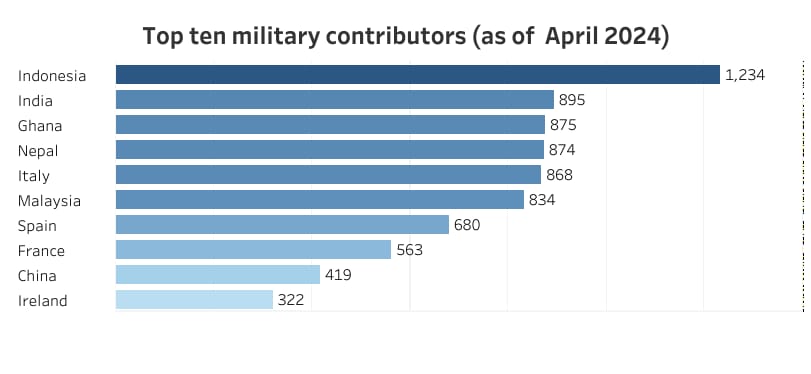 Source: UNIFIL Official Site
Source: UNIFIL Official SiteDeployment areas
UNIFIL’s headquarters are located in Naqoura.
Its operational area extends from the Blue Line in the south to the Litani River in the north and is divided into two sectors: east and west. The western sector, headquartered in Shamaa, is supported by five battalions, while the eastern sector, headquartered in Naqoura, is supported by four battalions.
UNIFIL also maintains a presence at Beirut International Airport and the Beirut Port to facilitate military rotations and logistical operations.
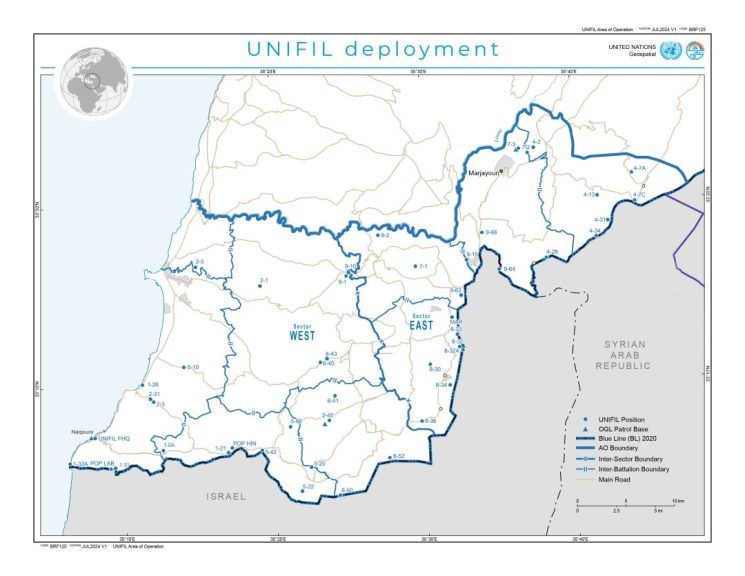 Source: UNIFIL Official Site
Source: UNIFIL Official Site
Read more


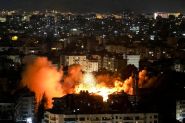
Comments